Podcast Ep #13: You Shall Teach Your Children
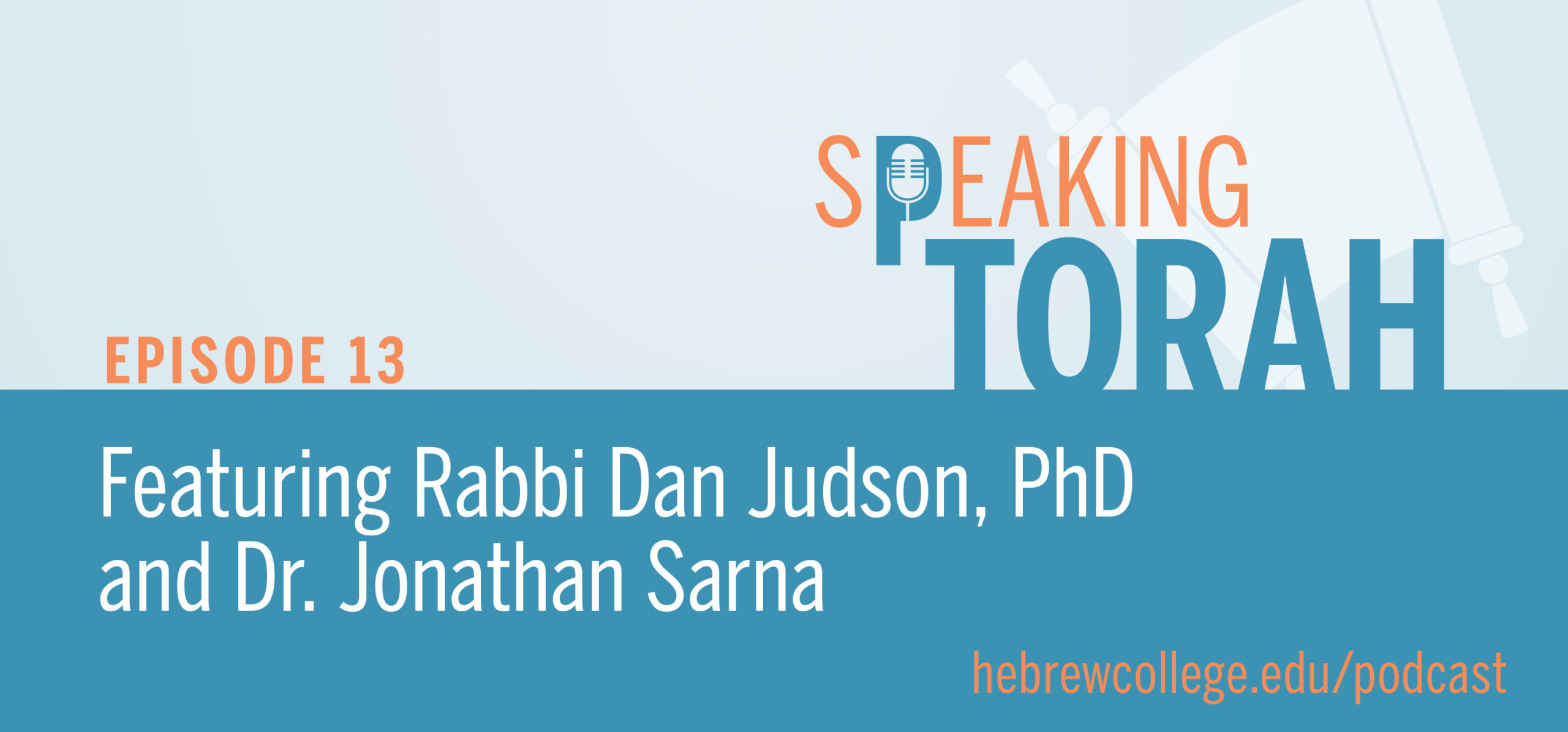
We would make a mistake if we thought that the contribution of Hebrew College was just in training up scholars. Its contribution was in raising an educated, Jewishly educated laity here in Boston. A sense of a Jewish world where — this is a true story — the attorney of Warren Buffett, who was a Prozdor graduate, also knew how to study, knew Hebrew, and was really very proud of what that allowed him to do in his community when he moved from Boston to Omaha.
– Dr. Jonathan D. Sarna
Today, we’re sharing a discussion between Rabbi Dan Judson and his teacher, Dr. Jonathan Sarna, held during Hebrew College’s Centennial Celebration on June 2, 2022. Together, they lead us through the history of Hebrew College, discussing the importance of l’dor v’dor, the link between Israel and the College, and the amazing intellectual shoulders we are standing on.
Rabbi Dan Judson is dean and chief academic officer of Hebrew College. From 2018 to 2021, he served as Dean of the Hebrew College Rabbinical School. He received his Doctorate in Jewish History from Brandeis University where his research focused on the history of American synagogue finances. Dr. Jonathan Sarna is the Joseph H. and Belle R. Braun professor of American Jewish History and Director at the Schusterman Center for Israel Studies at Brandeis University.
Tune in for a dynamic talk between Rabbi Judson and Dr. Sarna, giving us deep insight into Hebrew College’s commitments to Jewish culture, Jewish leadership, and passing wisdom from generation to generation. They even glimpse into the College’s cultural curriculum 100 years ago.
What You’ll Discover from this Episode:
- How Hebrew College built its unique connection to Israel in the early days through language.
- Hebrew College’s 100-year commitment to Jewish culture, and the cultural offerings the College had at the time of its inception.
- How Hebrew College has focused on raising Jewish leadership throughout the past century.
Featured on this Episode:
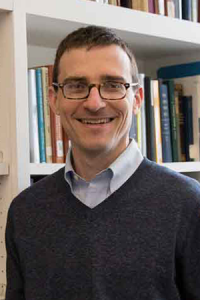
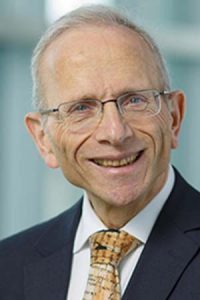
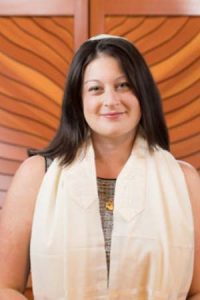
A special thank you for this episode’s musical contributions:
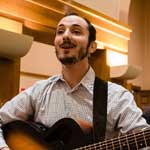
Jackson is an Ordination Candidate at the Rabbinical School of Hebrew College in Newton, MA. He grew up at Congregation Rodef Sholom in San Rafael, CA where he cultivated a love of Judaism, embolden with music, spirituality and justice.
Esa Einai (Psalm 121:1)
Music by Jackson Mercer
Guitar and Melody by Jackson Mercer
Harmonies by Cantor Rosalie Will, Ilana Sandberg, Rabbi Micah Shapiro, Rabbi Josh Warshawsky, Noah Diamondstein, Ryan Leszner, Eliana Light.
Ashreichem (Poet unknown – Persia)
Performed by Rabbi Arielle Lekach-Rosenberg`17, Rabbi David Fainsilber`14, and Rabbi Micah Shapiro`17
Rabbi Jessica Lowenthal: I’m your host, Rabbi Jessica Lowenthal, spiritual- leader of Temple Beth Shalom in Melrose, Massachusetts and 2019 graduate of Hebrew College filling in for our regular hist Rabbi Jeff Summit. In this podcast, Jewish leaders from around the world read essays from Hebrew College alumni about how Torah can help us navigate the most pressing issues of our time. Together, we explore the ways Torah could help us approach the world with creativity, healing, and hope.
This week, we are pleased to share a discussion between Rabbi Dan Judson and Dr. Jonathan Sarna from Hebrew College’s centennial celebration on June 2nd 2022. Together, they lead us through the history of Hebrew College, discussing the deep importance of l’dor v’dor, the link between Israel and the college through language, and the amazing intellectual shoulders we are standing on. You even get a glimpse of the curriculum from 100 years ago.
Rabbi Dan Judson is dean and chief academic officer of Hebrew College. From 2018 to 2021, he served as Dean of the Hebrew College Rabbinical School. He received his Doctorate in Jewish History from Brandeis University where his research focused on the history of American synagogue finances.
Dr. Jonathan Sarna is the Joseph H. and Belle R. Braun professor of American Jewish History and Director at the Schusterman Center for Israel Studies at Brandeis University. Read more about our speakers on the Speaking Torah webpage at herbrewcollege.edu/podcast. And now, here are Rabbi Judson and Dr. Sarna discussing “You Shall Teach Your Children.”
—
Rabbi Dan Judson: With enormous kavod, I want to introduce – with enormous honor – I want to introduce Dr. Jonathan Sarna. I have the great privilege of calling Jonathan my teacher. Jonathan is a graduate of Hebrew College, is a friend of Hebrew College. I keep asking Jonathan to do things and he keeps saying yes, like tonight. He cares deeply about the College.
So with that as an introduction, Jonathan and I are going to be talking about three – reflect briefly on three essential aspects of the college’s history; its connection to Israel, its connection to Jewish culture, and its commitment to the creation of Jewish leaders.
And we call this talk You Shall Teach Your Children because Jonathan had a memory that that banner was hanging in the previous Hebrew College building emblazoned with that quote. And I think it well sums up the mission of these many years. So, with that, Jonathan, I’m going to ask you to reflect on the college’s connection to Israel as a core element.
Dr. Jonathan Sarna: First let me say, what a pleasure and privilege it is to be here. And indeed, I spent eight years at the Hebrew College, four at the Prozdor, four at the college. So, I consider the Hebrew College very much part of my life and indeed I’m second generation in the sense that my mother was the associate librarian and really spent a lot of time here.
Now, the question is the tie of the Hebrew College to Israel. On the one hand, we didn’t have a trip to Israel when I was here and we probably didn’t – I don’t remember even a course called Israel Studies. But we learned Hebrew.
It was called Hebrew Teachers College in those days for a reason. And there was a deep cultural tie to Israel. There was, in addition, a sense that this Hebrew language that was so very important, and culture, would link us to Jews everywhere and to Israel.
I remember, maybe there are a few others here who remember, when David Ben-Gurion came and spoke at Hebrew Teachers College. He spoke in Hebrew and he wanted to make a point that he would show up, then on Hawes Street, in order to underline a tie between Israel and the Hebrew College.
And indeed, many Israeli professors would, in an era before they had somewhere to study, in an era before they would have a place they would teach in the Diaspora, where they would go on sabbatical, they knew they could come to Hebrew College.
I studied with the great literary scholar Israel Levin. He spent a year at Hebrew then Teachers College at Hebrew College, Nurith Govrin and others. So, there were remarkable ties, and many of the faculty have ties with Israel. In other words, we absorbed a certain love of Israel.
Rabbi Dan Judson: So, we were going to touch on the Hebrew College commitment to Jewish culture. And it had it from the beginning, from the get-go. So, my students now, rabbinical and cantorial students now, you just saw, we had amazing musicians, we have artists, we have dancers.
I think some of my students now think it’s radical to be a seriously learned Jewish person who dances, for example. But in the first years of Hebrew College – this is quite amazing – 100 years ago, this is what the College had as its offerings for Jewish culture 100 years ago.
There was a theatre where the Masada Student Organization put on plays by [inaudible 0:06:14.7]. It had a dance troupe. It had a museum. It had a library. It had an orchestra. It had a gymnasium. It had evenings devoted to Hebrew poetry, Zionist thinkers, rabbinic scholarship, biblical scholarship, not to mention nights devoted to history lectures or Jewish Sociology.
The goal of the college, in the words of its founders, was to create high standards of Jewish culture in America. Eisig Silberschlag, who was my predecessor as Dean of the College was an extraordinary scholar who wrote award-winning poetry, wrote biographies of Zionist intellectuals, and I become nervous on saying the last thing which he did because you might imagine that the intellectual development of the college has sort of moved down in who the Deans are. But he translated from the original Greek, which he was a master scholar of, to Hebrew the plays of Euripides, for which he won the Tel Aviv Prize.
There’s been a slight, I would say, decline in the intellectual quality, but let’s not dwell on that. I found a speech of his. This is an extraordinary speech where he said that Hebrew College reflected from its very beginning a thorough commitment to Jewish culture. And he asked the question, what does the world culture mean? Being a scholar of Latin, among other things, he knew that the word culture is a derivative of the Latin word colere, which means to till or to improve one’s field or garden through labor.
Actual farming explores, he said, the potential of the earth. Intellectual farming explores the potential of the universe. And this, he said and I would say, is what Hebrew College has been doing for many years; exploring the potential of the universe through its commitment, its broad commitment to Jewish culture. Jonathan, I’m going to ask you to speak a little about Hebrew College’s commitment to raising Jewish Leadership.
Dr. Jonathan Sarna: It’s impossible to speak only a little about that. One could list the famous scholars who came through Hebrew College. A whole generation of Jewish Scholars beginning, by the way, with Ben Halpern, my teacher, and Isadore Twersky, and Arnold Band. And, of course, our friend Professor Paula Hyman, a blessed memory who always cited the role of the Hebrew College and who herself contributed to the Hebrew language and was so proud of that precisely because she had learned Hebrew here.
But we would make a mistake if we thought that the contribution of Hebrew College was just in training up scholars. Its contribution was in raising an educated, Jewishly educated laity here in Boston. A sense of a Jewish world where – this is a true story – the attorney of Warren Buffett, who was a Prozdor graduate also knew how to study and knew Hebrew and really was very proud of what that allowed him to do in his community when he moved from Boston to Omaha. I’m referring to my great friend, the late Forest Krutter, and so many others.
That’s what helps make Boston unique, was the fact that there was a Hebrew College that allowed people to learn what Jewish civilization was about, even as they pursued leadership across not only New England, but ultimately across the world.
—
Rabbi Jessica Lowenthal: Thank you for joining us for this episode of Speaking Torah. We want to thank Emily Hoadley for our logo and Hebrew College Rabbinical Student and composer Jackson Mercer for our theme music Esa Einai. To learn more about Hebrew College, please visit hebrewcollege.edu/podcast and remember to subscribe, like, and rate Speaking Torah wherever you listen to podcasts.
We’ll leave you this week with “Ashreichem” with Hebrew College alumni Rabbi Arielle Lekach-Rosenberg, Rabbi David Fainsilber, and Rabbi Micah Shapiro who performed this piece at the college’s centennial celebration. I’m your host Rabbi Jessica Lowenthal. Thank you for joining us on Speaking Torah.
Enjoy the Show?
- Don’t miss an episode, follow the podcast on Spotify, Apple Podcasts, Stitcher, or RSS.
- Leave us a review in Apple Podcasts.


